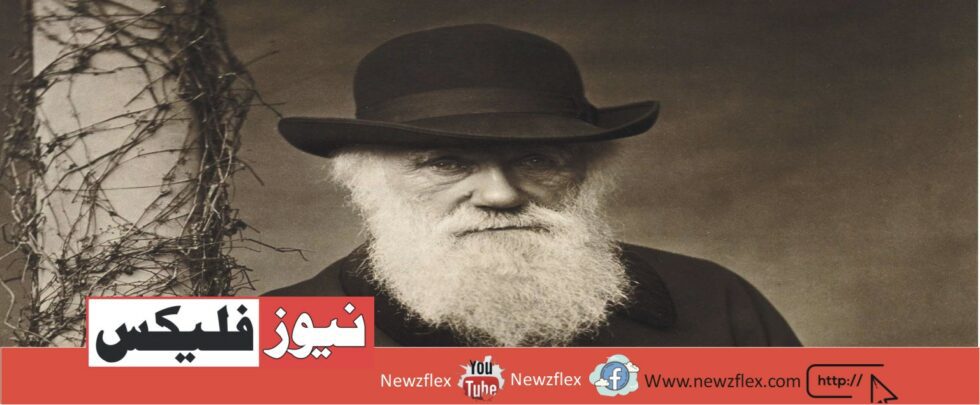
Darwin, Charles (1809–1882)
Childhood:
Born: Shrewsbury, Shropshire, England, February 12, 1809.
Family: Robert Darwin, a wealthy banker and doctor in society, and Susannah Darwin, née Wedgwood, were the parents of Darwin, the fifth of six children.
Education: After studying medicine at the University of Edinburgh, the student transferred to Christ’s College, Cambridge, to study religion. Darwin’s interest in natural history began as a Cambridge student.
The Beagle Voyage:
Darwin was invited to travel with HMS Beagle on a global survey mission in 1831 as a naturalist.
Throughout the five-year journey (1831–1836), Darwin made many observations about fossils, living things, and geology.
His theories regarding species and their environmental adaptations were especially impacted by his studies in the Galápagos Islands.
Evolutionary Theory:
Darwin spent years interpreting his observations and carrying out tests after arriving back in England.
In “On the Origin of Species through Natural Selection,” which he published in 1859, Darwin put forth the hypothesis of evolution via natural selection.
The book provided a wealth of evidence supporting the idea that species change over time as a result of advantageous features increasing an individual’s chances of surviving and procreating.
Influence and Disagreement:
Darwin’s theory contradicted the conventional wisdom that holds that species are unchangeable and directly created by God.
Although his theories generated a lot of criticism, especially from religious organisations, they also received a lot of support and served as the basis for contemporary evolutionary biology.
Later Years:
Darwin kept writing and publishing important books, such as “The Expression of the Emotions in Man and Animals” (1872) and “The Descent of Man” (1871), which applied evolutionary theory to the evolution of humans.
In his later years, he continued his writing and studies at his house in Down House, Kent, where he lived in relative solitude.
Demise:
At the age of 73, Charles Darwin passed away on April 19, 1882. He was given the distinction of being buried in Westminster Abbey in recognition of his major contributions to science.
History:
Darwin’s contributions to biology, anthropology, psychology, and other disciplines have had a significant and enduring influence.
His theory of evolution is still a foundational idea in biology, impacting our comprehension of the natural world and the origins of life on Earth.
Darwin’s life and contributions to science and our comprehension of the natural world are still being studied and honoured today.
چارلس ڈارون (1809-1882)
ابتدائی زندگی
پیدائش: 12 فروری، 1809، شریوسبری، شاپ شائر، انگلینڈ میں۔
خاندان: ڈارون امیر معاشرے کے ڈاکٹر اور فنانسر رابرٹ ڈارون اور سوسنہ ڈارون (نیی ویجووڈ) کے چھ بچوں میں پانچواں تھا۔
تعلیم: ابتدائی طور پر یونیورسٹی آف ایڈنبرا میں طب کی تعلیم حاصل کی لیکن بعد میں کرائسٹ کالج، کیمبرج میں الہیات کی طرف متوجہ ہو گئے۔ کیمبرج میں اپنے دور میں ہی ڈارون نے قدرتی تاریخ میں دلچسپی پیدا کی۔
بیگل کا سفر
سال 1831 میں، ڈارون کو ایچ ایم ایس بیگل کو دنیا بھر میں ایک سروے مہم کے لیے ایک ماہر فطرت کے طور پر شامل ہونے کی دعوت دی گئی۔
یہ سفر پانچ سال (1831-1836) تک جاری رہا، جس کے دوران ڈارون نے ارضیات، فوسلز اور جانداروں کا وسیع مشاہدہ کیا۔
گیلاپاگوس جزائر میں ان کے مشاہدات نے خاص طور پر پرجاتیوں اور مخصوص ماحول میں ان کے موافقت کے بارے میں ان کے خیالات کو متاثر کیا۔
نظریہ ارتقاء
انگلینڈ واپس آنے کے بعد، ڈارون نے اپنے مشاہدات کا تجزیہ کرنے اور تجربات کرنے میں برسوں گزارے۔
سال 1859 میں، اس نے ‘قدرتی انتخاب کے ذریعہ پرجاتیوں کی اصل پر’ شائع کیا، جہاں اس نے قدرتی انتخاب کے ذریعے ارتقاء کا نظریہ پیش کیا۔
کتاب نے وسیع ثبوت پیش کیے ہیں کہ پرجاتیوں کا ارتقاء وقت کے ساتھ ساتھ اس عمل کے ذریعے ہوتا ہے جہاں سازگار خصلتوں کے حامل افراد کے زندہ رہنے اور دوبارہ پیدا ہونے کا امکان زیادہ ہوتا ہے۔
اثر اور تنازعہ
ڈارون کے نظریہ نے پرجاتیوں کے غیر متغیر ہونے اور براہ راست خدا کے ذریعہ تخلیق ہونے کے روایتی نظریہ کو چیلنج کیا۔
اس کے خیالات نے خاص طور پر مذہبی اداروں سے اہم تنازعہ کو جنم دیا، لیکن اس نے کافی حمایت حاصل کی اور جدید ارتقائی حیاتیات کی بنیاد رکھی۔
بعد کی زندگی
ڈارون نے بااثر کام لکھنا اور شائع کرنا جاری رکھا، جن میں ‘دی ڈیسنٹ آف مین’ (1871) شامل ہیں، جس نے ارتقائی نظریہ کو انسانی ارتقا پر لاگو کیا، اور ‘انسان اور جانوروں میں جذبات کا اظہار’ (1872)۔
اس کے بعد کے سال ڈاون ہاؤس، کینٹ میں اپنے گھر میں رشتہ دار تنہائی میں گزارے گئے، جہاں اس نے اپنی تحقیق اور تحریر جاری رکھی۔
موت
چارلس ڈارون کا انتقال 19 اپریل 1882 کو 73 سال کی عمر میں ہوا۔ انہیں ویسٹ منسٹر ایبی میں دفن کیا گیا، یہ اعزاز سائنس میں ان کی نمایاں خدمات کی عکاسی کرتا ہے۔
میراث
ڈارون کے کام نے حیاتیات، بشریات، نفسیات اور دیگر شعبوں پر گہرے اور دیرپا اثرات مرتب کیے ہیں۔
اس کا نظریہ ارتقاء حیاتیات میں ایک مرکزی تصور ہے، جو اس بات کو متاثر کرتا ہے کہ ہم قدرتی دنیا اور زمین پر زندگی کی نشوونما کو کیسے سمجھتے ہیں۔
ڈارون کی زندگی اور کام کا مطالعہ جاری ہے اور سائنس اور قدرتی دنیا کے بارے میں ہماری سمجھ میں ان کی اہم شراکت کے لئے منایا جاتا ہے۔








